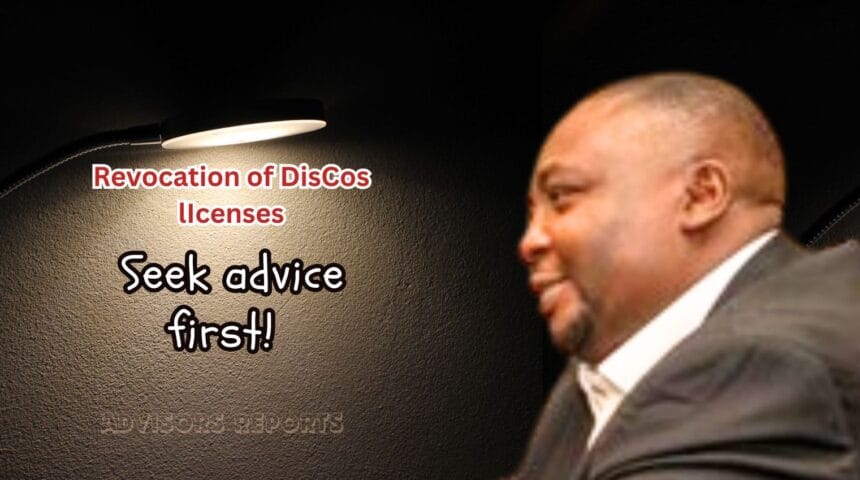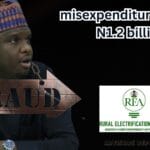Electricity industry advisors and customer advocacy groups have reminded Chief Adebayo Adelabu, Power Minister that revoking the license of electricity distribution company (DisCo) is not within his jurisdiction.
In response to the recent revocation threats made by the Power Minister, AbdulWasiu Esuola, an Energy and Corporate Lawyer, expressed his concerns, stating that such actions are detrimental to the current state of the power industry.
He said, “The Minister needs to face his job of steering the policy direction of the Power industry and let NERC do its statutory job of regulating the power industry.
“Besides, what all entities on the regulatory side and industry players should be concerned about at this point is supporting State Governments so that we can all take the benefits of the newly decentralised power industry and supporting NERC and the three working groups recently inaugurated by NERC so that the country can also take the benefits under the Electricity Act 2023 and the Electricity (Amendment) Act 2024,” Esuola noted.
Adetayo Adegbemle, Executive Director of PowerUp Nigeria, emphasized the importance of the Power Minister’s understanding of the industry’s true challenges, given his extensive experience in the regulated sector.
He said, “His recent statement is like Central Bank Nigeria (CBN) saying they will revoke a Bank license.
Adegbenle therefore encouraged the Power Minister to seek informed advice prior to enacting policy decisions.
In a similar vein, Idowu Adedotun, an energy analyst, observed that Adelabu’s decision-making tendencies include being somewhat casual with facts and displaying a propensity for making political missteps.
The revocation threat, according to him, may exacerbated Nigeria’s already dire power situation, with the country experiencing unprecedented challenges in its power supply.
He said, “Over the past seven months under the Minister’s tenure, the power supply from the grid to Distribution Companies (DisCos) has fluctuated alarmingly between 3000 MegaWatts and 2000MW.”
Adedotun urged the Minister to focus on achieving short- and medium-term gains rather than indulging in trivial sentiments of license revocation that risk further complicating the electricity market.
The expert also underscored the imperative for the Minister of Power to focus on quick wins by addressing critical issues within the power transmission sector, particularly advocating for an aggressive decentralization of the Transmission Company of Nigeria (TCN) network.
He further urged Adelabu to actively engage with and leverage all government metering initiatives, such as the Presidential Metering Initiative, to expedite the metering process for all electricity consumers nationwide.
Identifying these actions as low-hanging fruits, Adedotun called upon the Power Minister to collaborate closely with Distribution Companies (DisCos), the Ministry of Finance, and the Presidency to facilitate the resolution of outstanding electricity debts, notably those owed by Ministries, Departments, and Agencies (MDAs), including his own Office of the Power Minister.
Emeka Ojoko, Executive Coordinator, NEPA Wahala, also in his comment said, “If the DisCo licences are revoked, who will take over their franchises?
According to Ojoko, no investor will commit long term resources in an industry where decisions are driven by political rather than economic considerations.
He said, “The problem is not the GenCos, TCN or DisCos, rather it is the structure of the Nigerian Electricity Supply Industry and policy formulation/implementation.
“The government needs to amend or abrogate the policies which constrain sector competition, efficiency and profitability, without which the electricity supply value chain will continually lack the resources and revenues to maintain and upgrade generation, transmission and distribution infrastructure,” the Executive Coordinator, NEPA Wahala stated.
Ojoko therefore emphasised that these fire brigade measures by the incumbent Minister of Power will not move us any closer to the short-term goal of ensuring 100 percent wheeling and distribution of our current installed generation capacity, before we talk about increasing that installed capacity.



